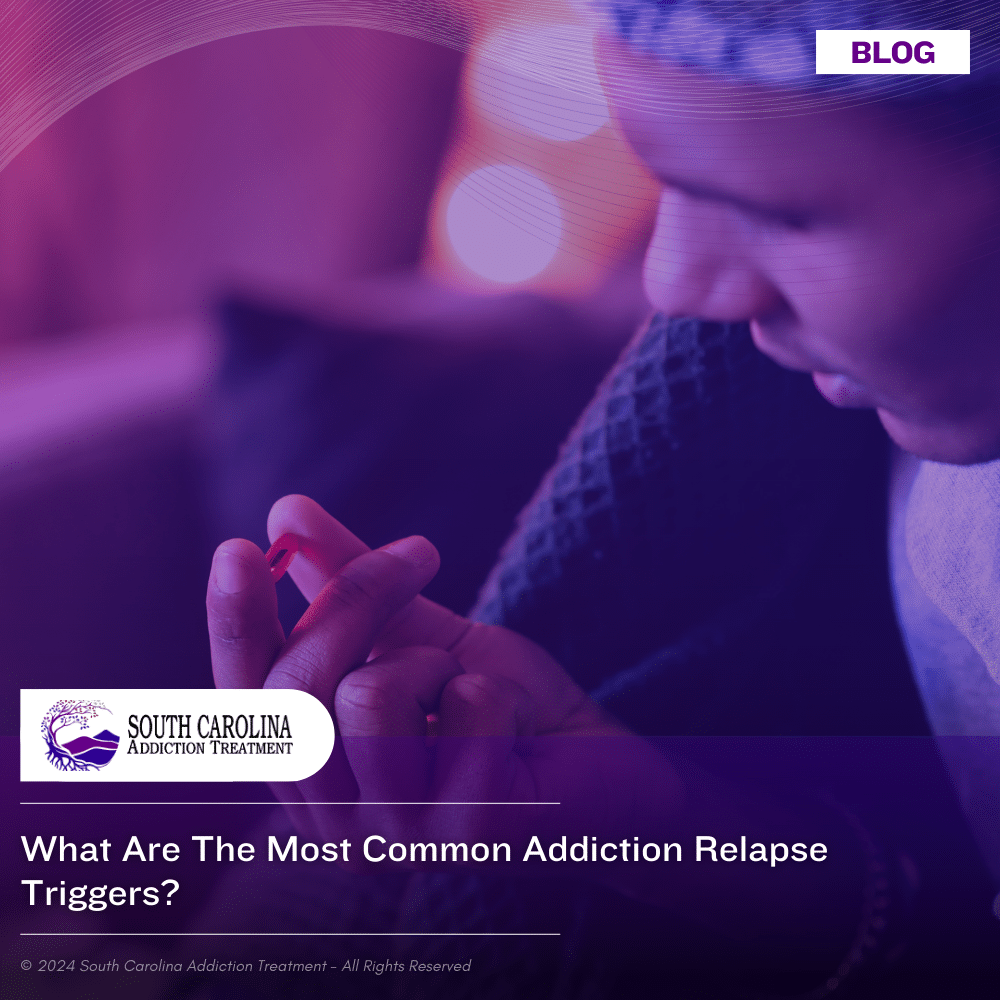What are the Most Common Addiction Relapse Triggers?

Medically Verified: 2/1/24
Medical Reviewer
Chief Editor

All of the information on this page has been reviewed and verified by a certified addiction professional.
Addiction is a chronic and progressive disease that can affect every aspect of an individual’s life. The best way to recover from a substance use disorder is to attend a professional drug rehab program. However, like any other chronic condition, relapse can still happen even after receiving the support and tools you need from addiction treatment.
According to the National Institute on Drug Abuse, 40-60% of recovering addicts sometimes suffer from a relapse.[1] While relapse is relatively common, there are ways you can prevent yourself from experiencing one. Some of the most important things you can do to prevent relapse is to educate yourself on common relapse triggers, learn healthy coping mechanisms, and remain dedicated to your recovery.
Being aware of the most common addiction relapse triggers can help you prepare for them and prevent yourself from experiencing an unnecessary drug or alcohol relapse.
Common Addiction Relapse Triggers and How to Avoid Them
Relapse triggers are people, places, or situations that remind you of your past drug abuse, causing you to crave substances. For many people, this might include walking past a liquor store, running into old friends they used drugs with, or simply seeing a substance that they used to abuse. However, triggers can also be more complex.
The most common relapse triggers include:
Untreated Mental Health Issues
According to the Substance Abuse and Mental Health Services Administration, “approximately 9.2 million adults in the United States have a co-occurring disorder.”[2]
When someone has a co-occurring disorder, that means they suffer from an addiction and a mental health condition at the same time. Oftentimes, people struggling with addiction are unaware that they have a mental illness because the symptoms of each condition mimic one another. Once they go to rehab and receive the help they need for their substance use disorder, they will continue experiencing symptoms of mental illness.
Over time, these untreated symptoms will trigger the individual to crave drugs or alcohol to numb their pain. Sometimes, people are aware of their co-occurring disorder and stop taking their medications or going to therapy because they feel better. This can also lead to an addiction relapse, as mental health conditions must be properly managed to avoid being triggered to abuse substances.
Stress and Other Difficult Emotions
The number one trigger for addiction relapse is stress. Dealing with life stressors as a person in recovery from addiction can be extremely difficult. While you are just trying to focus on one day at a time, your life is throwing you one curveball after another.
Stress from work, school, or your home life can cause you to become overwhelmed. After a while, you may begin to fantasize about abusing substances to numb your emotions and eliminate stress. As a result, it is vital to learn how to overcome stress in healthy ways using proper coping mechanisms, like yoga, meditation, therapy, or even prayer.
Dating and Relationships
During most drug rehab programs, you are asked to refrain from dating for at least a year because relationships are highly stressful, causing a full range of intense emotions. Early on in your recovery, you may not be ready to deal with the stressors associated with intimate relationships.
Let’s say you enter a relationship before your recovery is solid enough. You and your partner get into a fight, or break up, leaving you feeling upset, alone, or even angry. These intense emotions often trigger cravings, sometimes leading to relapse.
You should always make sure that you are in a good mental space before entering your first relationship in sobriety. Once you are in that relationship, it might be wise to engage in extra recovery maintenance techniques, especially if you are hitting a rocky point in the relationship. This may involve attending extra meetings, going to therapy, and receiving support from your peers in recovery.
Social Isolation
Oftentimes, people suffer from a fear of asking for help. When they begin experiencing stress, and anxiety or are just having a difficult time in general, they tend to isolate themselves socially. Isolation is one of the most dangerous relapse triggers, as social isolation creates the perfect storm for addiction to thrive.
When you are in recovery from addiction you cannot allow yourself to become isolated. If you start feeling like you are heading toward a relapse, ask for help. The people in your recovery community understand what you are going through and can provide you with the support and advice you need to stay sober.
Overconfidence
Lastly, overconfidence is a very common trigger for addiction relapse. Overconfidence occurs when you start to think that you do not need to go to meetings, therapy, or support groups anymore. This tends to happen once you start feeling better and have regained the things your addiction took away from you.
Even once you begin to feel better and thrive in sobriety, you must continue doing the things that got you there, which means going to sober support meetings, continuing therapy, and practicing healthy coping mechanisms to avoid triggers.
Find Help for Yourself or a Loved One Today
If you or a loved one suffered from an addiction relapse, recovery is possible. While experiencing a relapse can be discouraging, you must remember that it is a part of many people’s stories. Going back to treatment and receiving a combination of support, education, and relapse prevention planning can provide you with the tools you need to avoid a relapse in the future.
To learn more about our drug and alcohol addiction treatment program, contact South Carolina Addiction Treatment Center today.
References:

